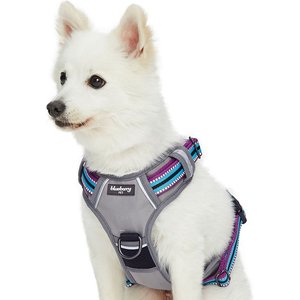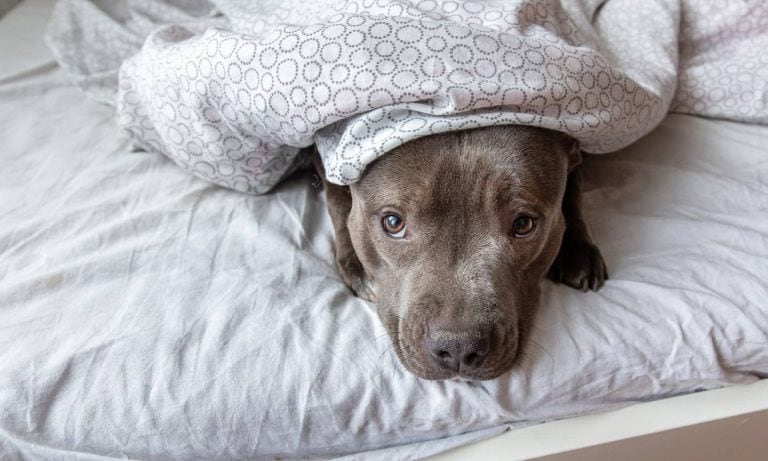If you’ve ever had stiffness in your neck or back, you’ve probably sought the help of a massage therapist or chiropractor at some point in your life. But is the same true for our pets? Can an animal chiropractor help relieve sore joints and improve mobility? Dr. Katie Malensek, DC, DVM at Ravenwood Veterinary Clinic in Port Orange, Fla., helps answer our questions about cat and dog chiropractors, slipped discs in dogs and cats, and which pets and conditions can benefit from receiving care from an animal chiropractor.
What Issues Can an Animal Chiropractor Help With?
According to Dr. Malensek, chiropractic care can be used for “increased comfort and mobility of the spine and peripheral joints, and improvement of performance (in agility dogs and performance or racing horses).” Although chiropractic care can be helpful for animals when used as preventative care, or to enhance performance in athletes and show animals, or as part of a care plan for injured animals, Dr. Malensek stresses, “It is extremely important that an owner who seeks chiropractic care for their animals first have the animal evaluated by a veterinarian.” Many times, a pet owner will come to her requesting chiropractic care when there’s actually a different underlying issue that needs a much different treatment.
Symptoms to Look For:
It can be tricky to tell whether your pet is a candidate for care from an animal chiropractor, but being aware of the signs of joint and spinal issues can help. Some symptoms that Dr. Malensek notes are “limping, stiffness and a decreased interest in movement or usual activity.” If you see these signs, the first step is to see your veterinarian to rule out any other causes and to determine if the decreased mobility or change in routine is due to a back problem.
Dr. Malensek refers to several real-life examples of cases where a pet parent sought chiropractic care when the true issue was something entirely different. “Cats with diabetes have a very particular gait abnormality that can appear to be musculoskeletal in origin, but is actually diabetes, and just doing a chiropractic adjustment would delay the correct diagnosis and treatment. Similarly, a limping dog with a painful shoulder may have bone cancer, and performing an adjustment may cause pathological fracture.” Only a veterinarian can determine the problem and the correct course of action.
What to Expect During a Chiropractic Exam
When you take your pet to the veterinarian to be checked out, the first step is a traditional physical exam. The doctor will assess your pet’s “spinal and peripheral limb movement and mobility to seek chiropractic subluxations throughout the spine. This entails both static palpation and motion palpation of the neck, spine, hips and limbs to help evaluate the pet for level of mobility and comfort,” says Dr. Malensek. A vertebral sublaxation happens when the spinal bones have come out of their proper position, and this directly affects the nervous system, which controls other important functions throughout the body.
After examination, your veterinarian can determine if your pet is a candidate for chiropractic care. “If I have an animal that gets chronic intervertebral disc disease or arthritis pain, I will offer routine chiropractic care to maintain spinal health. For injuries, not primarily as a first method of treatment, but sometimes if an animal is cage-bound for a recovery or is stiff or sore from compensation, I will use it to help improve comfort,” explains Dr. Malensek.
Invertebral disc disease, or IVDD in dogs, and sometimes in horses or even cats, is a condition where the soft, spongy gel inside the discs that connect the vertebrae squeezes out of place and pushes against the spine. You may have heard it referred to as a slipped disc in dogs, a term that’s used to refer to a bulging disc that can rupture and turn into a herniated disc. “Some cases of intervertebral disc disease that are not at a surgical level can benefit from chiropractic care as a primary intervention along with traditional anti-inflammatory and pain medications,” says Dr. Malensek. If your veterinarian does recommend chiropractic care, an animal chiropractor will give an adjustment. (Some veterinarians are also certified as animal chiropractors.) This is a “low-amplitude, high-velocity thrust in a specific direction into a specific joint to help improve mobility of the joint,” Dr. Malensek says.
Tips to Keep Your Pet’s Back Healthy
When it comes to IVDD in dogs, some breeds are prone to having issues in adulthood, including Shih Tzu, Dachshunds, Beagles, Cocker Spaniels, Bulldogs and Basset Hounds. Other breeds that might have IVDD later in life include German Shepherds, Labrador Retrievers and Doberman Pinschers.
Even if your pup is predisposed to disc disease, there are some things you can do to help keep their back healthy. Just like us, dogs (who are not suffering from an injury) need regular exercise to keep them healthy and mobile. This should be a moderate levels of activity, as too much can cause wear and tear on the joints. Uncontrolled jumping of breeds with shorter legs can also cause problems. For these breeds, ramps and steps are great dog supplies to prevent jumping up on the couch or bed or into the car. Be sure to keep your pet at the recommended weight for their size, as being overweight puts more pressure on the backbone, neck and joints. You can also use a harness for your walks in place of a dog collar, to reduce stress on the neck.
Seeing an animal chiropractor should be recommended by your veterinarian, and adjustments can sometimes be done by your veterinarian if they are certified doctors of chiropractic (DC). Working with traditional veterinary care, animal chiropractors can provide integrative care in certain cases to help restore mobility in your pets and maintain back and joint health.
For more on holistic therapies for pets, read:
- Senior Dog Care: Holistic Therapy Options for Older Dogs
- Traditional Chinese Veterinary Medicine and Treatments
- Veterinary Acupuncture for Dogs and Cats

Nikki Naser, BeChewy Senior Editor
Instead of owning 30 cats, Nikki has an impressive collection of 30 cat-themed T-shirts, and just 4 pets—a ginger-haired senior cat, a senior Maine Coon, a middle-aged Choodle, and a young kitty who showed up one day on the back steps. A former Orlando resident, Nikki worked on several tourism publications before moving to South Beach. When she’s not stopping to take pics of community cats to post on Instagram, Nikki spends her time with the office pets at Chewy, writing for their BeChewy blog.
Share:












